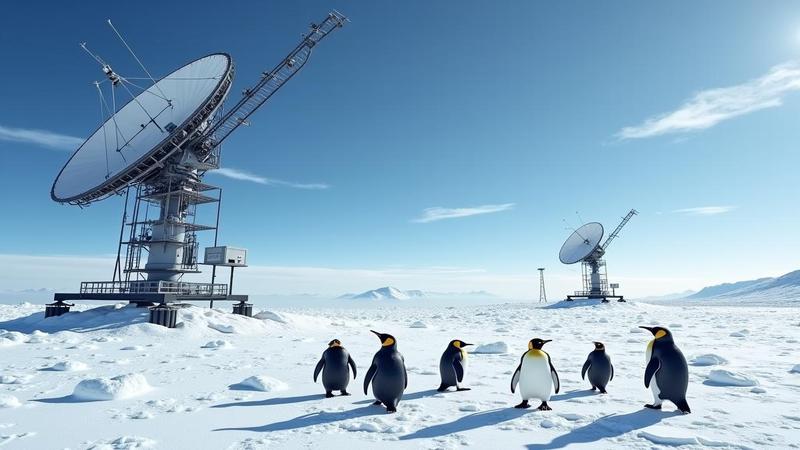Stealth Asteroid Buzzes Earth; Astronomers Notice After Coffee Break

An asteroid performed a surprise flyby over Antarctica, slipping closer than a satellite while humanity’s professional sky-watchers stared straight into the infinite and whispered, ‘love the vibes.’ It was spotted hours later, aka astronomer time for ‘immediately after the surprise party.’
Experts reassured the public that the rock was harmless, much like a cosmic fruit fly, only faster and roughly the size of a studio apartment that forgot to pay rent. Confidence remains high that the planet will continue being missed by things we missed.
Witnesses report the asteroid wore a trench coat, sunglasses, and a fake mustache labeled ‘Comet.’ It muttered ‘just passing through’ in a gravelly voice and tiptoed past Earth like a raccoon leaving a four-star review for our atmosphere.
Closer than a satellite sounds dramatic until you realize satellites are like house plants with Wi‑Fi: they are everywhere, always judging, and inexplicably named. This rock politely threaded the gap like it had TSA PreCheck and a note from physics.
Amateur stargazers claim their dogs barked at the sky ten minutes before the flyby, which, scientifically, is a dataset shaped like a shrug. One backyard astronomer checked their all-sky meteor camera kit and discovered 42 pictures of clouds and a single smug blur.
As a man who respects methods sections the way penguins respect tuxedos, I asked what the data cannot say. It cannot say why our p-values were out shopping for a personality and texting me to phone a friend.

A spokesperson explained that tracking near-Earth objects is like monitoring every grain of sand in a leaf blower while riding a unicycle through a car wash. To their credit, they track thousands daily, occasionally including the one behind them tapping its foot.
Budget constraints did not help. One observatory replaced its wide-field camera with a motivational poster reading ‘You miss 100% of the meteors you detect tomorrow,’ which was inspiring right up until it was accurate.
Down south, penguins issued no comment, mostly because they are birds and also lawyers advised silence. A field researcher, clutching thermal night-vision binoculars, reported only an eerie breeze and a sense that the sky had winked.
Solutions were proposed with the urgency of a meteor approaching your calendar. Ideas ranged from stapling AirTags onto the cosmos to launching a moon-sized ring doorbell, to hiring James Bond, because apparently subtle rocks require a tuxedoed countermeasure.
For the record, this was not a near miss; it was a very precise miss, like a surgeon threading a needle blindfolded while the needle files for emancipation. The confidence interval looked like a shrug emoji doing jazz hands.
Consider this a breakthrough only because something actually broke through our awareness: the part where we notice. Next time the sky sneaks by in a trench coat, we will be ready, or at least our p-values will finally phone that friend.
